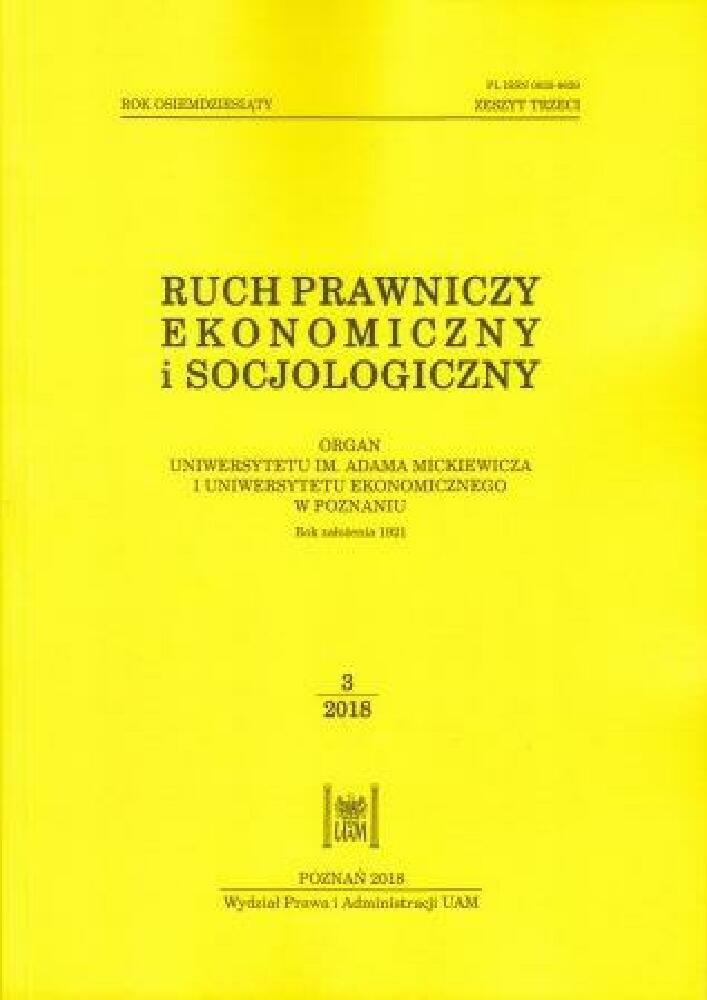Abstract
In the paper, I analyse the argumentation which supports the motion put forward by a group of Polish MPs challenging the constitutionality of the provision which allows abortion in the event of grave and irreversible fetal defects or an incurable illness that threatens the foetus life. My considerations do not concern the legality of this action. Instead, I am interested in the issue of moral legitimacy of the MPs’ action. I search for the answer whether their initiative is defensible in terms of public morality. The evaluation is conducted according to the principles of the most important contemporary conception of political legitimacy, which is John Rawls’s theory of public reason. Therefore, firstly, I give an account of the Rawlsian theory of public reason. I focus mainlyon the conditions that settle the criteria of the legitimacy of political actions. Then I summarise the arguments which support the demand of the MPs concerned. Finally, in the main part of the paper, I evaluate their action in the light of the theory of public reason.
Funding
National Science Centre
Research Grant UMO-2013/09/N/HS5/00669
References
Audi, R. (2000), Religious Commitment and Secular Reasons, Cambridge University Press, New York, Cambridge.
Campos, P., (1994), Secular fundamentalism, Columbia Law Review 94(6): 1814–1827.
Galewicz, W. (2010) Etyczne dyskusje wokół prokreacji, [w:] Galewicz W. (red.), Antologia bioetyki, Universitas, Kraków 2010: 9–43.
Galewicz, W. (2013), Status ludzkiego zarodka a etyka badań biomedycznych, WUJ, Kraków.
Gillam L. (1999), Prenatal diagnosis and discrimination against the disabled, Journal of Medical Ethics 25: 163–171.
Larmore, C. (2003) Public reason, [w:] Freemana, S. (ed.), The Cambridge Companion to Rawls, Cambridge University Press, New York, Cambridge: 368–393.
MacGilvray, E. (2004), Reconstructing Public Reason, Harvard University Press, Cambridge, MA.
Quong, J. (2011), Liberalism without Perfection, Oxford University Press, Oxford.
Rawls, J. (1998), Liberalizm polityczny, tłum. A. Romaniuk, WN PWN, Warszawa.
Rawls, J. (2001), Justice as Fairness: A Restatement, Harvard University Press, Cambridge, MA.
Rawls, J. (2009), Teoria sprawiedliwości, WN PWN, Warszawa 2009.
Sandel, M. (2009), Odpowiedź na liberalizm polityczny, [w:] Liberalizm a granice sprawiedliwości, Wydawnictwa Akademickie i Profesjonalne, Warszawa: 275–316.
Schwartzman, M. (2011), The Sincerity of Public Reason, Journal of Political Philosophy 19(4): 375–398.
Shakespeare, T. (1998), Choices and rights: eugenics, genetics and disability equality, Disability & Society 13(5): 665–681.
Sheldon, S., Wilkinson, S. (2001), Termination of pregnancy for reason of foetal disability: are there grounds for a special exception in law?, Medical Law Review 9: 85–109.
License
Copyright (c) 2018 WPiA UAM

This work is licensed under a Creative Commons Attribution-NonCommercial-NoDerivatives 4.0 International License.




